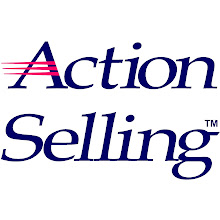Listen to the Customer
Blessed with the "gift of gab" are you? That's nice. But true sales professionals know that before they start gabbing to customers about their product features or anything else, they need to listen to what the customer has to say - and demonstrate that they're paying attention.
Customers won't buy from you if they don't like you, trust you or respect you. And they are far more likely to buy when you can position your product or service as a solution to what they perceive as an important need. Listening is the key sales skill that allows you to earn customer's trust and uncover their needs at the same time.
Customers care more that you understand their needs than that they understand your products.
Who decides whether you're a good listener? The customer does. And since customers can't read your mind, they can only judge by the behavior you show them. Here are five primary indicators that determine whether customers will perceive you as a good listener:
What kind of questions do you ask? Open-ended questions (as opposed to "yes" or "no" questions) encourage the customer to talk. That must happen before you can listen. Most salespeople ask far too few open-ended questions.
How do you demonstrate your interest? Focus your questions on the customer's interests, not your own. Why are you talking about your golf game if this person doesn't play?
Do you take notes? If you're so interested in what the customer is saying, why wouldn't you take notes?
Do you summarize what you hear? If you think you have uncovered an important need, restate it to check your understanding. This not only wards off confusion, it shows that you're paying attention.
Do you use what you've heard in your presentation? Your product pitch comes after you've listened, not before. And when you make your presentation, every feature and benefit you discuss should be tied to a need you uncovered by asking questions. That is the true test - and the true payoff - of your listening skills.
Customers won't buy your products unless they first "buy" you. And no matter how charismatic you think you are, you can't sell yourself to people who think you aren't paying attention to their concerns. Never mind being interesting. Be interested.
In The Field:
A sales representative for an electrical-equipment company landed a $77,000 order thanks to the listening skills he learned with the Action Selling Sales Training Program.
On a call to an electrical contractor, the sales rep used open-ended questions to uncover the key needs driving the purchasing decision: The contractor needed to buy supplies at a price point that wouldn't exceed the amount he had quoted for materials on a particular job, and he needed to buy them fast. The sales rep listened carefully, restated the needs to check his understanding and quickly submitted a bid tailored to those very requirements. It's hardly surprising that his was the winning bid.
